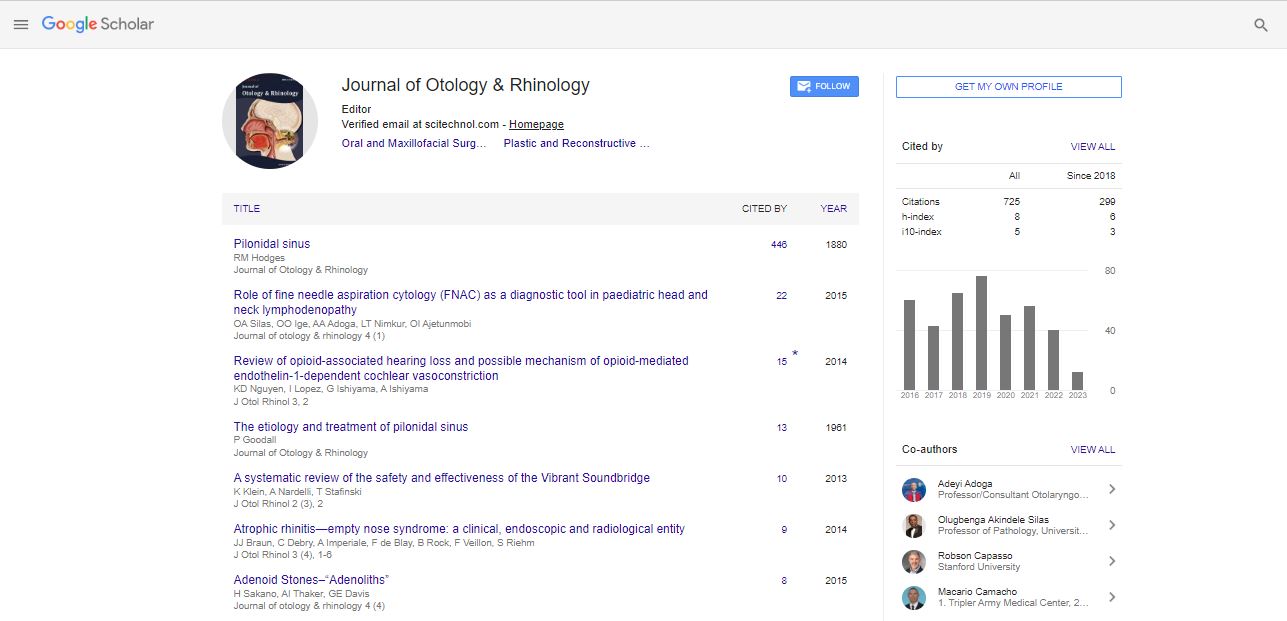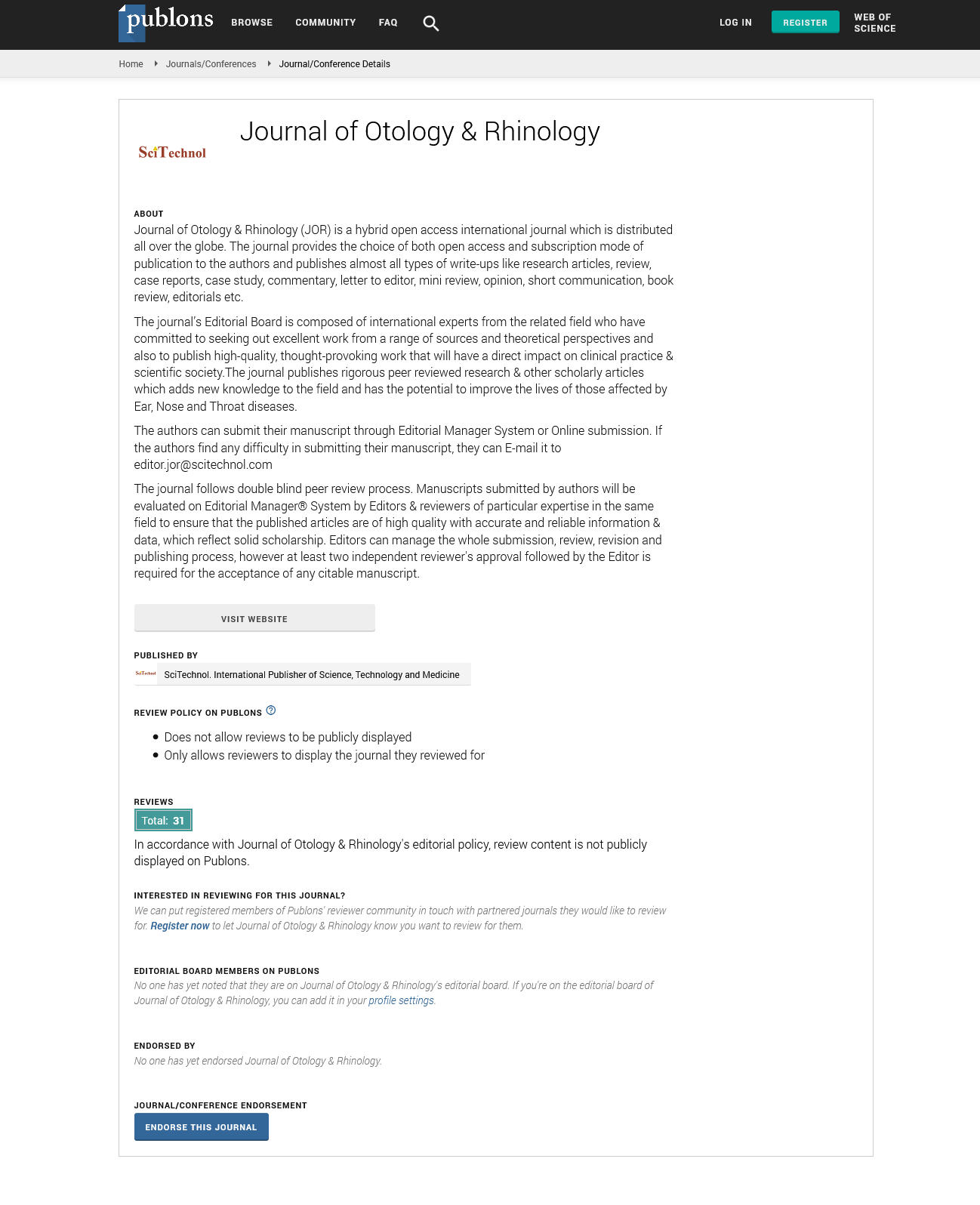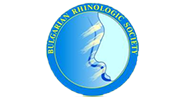Short Communication, J Otol Rhinol Vol: 12 Issue: 6
A Comprehensive Exploration of Velocardiofacial Syndrome
Elton Kacmarynski*
1Department of Otolaryngology-Head and Neck Surgery, University of Iowa Hospitals and Clinics, Iowa City, USA
*Corresponding Author: Elton Kacmarynski,
Department of Otolaryngology-
Head and Neck Surgery, University of Iowa Hospitals and Clinics, Iowa City, USA
E-mail: kacmaruynskielton@gmail.com
Received date: 23 October, 2023, Manuscript No. JOR-23-123586;
Editor assigned date: 25 October, 2023, PreQC No. JOR-23-123586 (PQ);
Reviewed date: 08 November, 2023, QC No JOR-23-123586;
Revised date: 15 November, 2023, Manuscript No. JOR-23-123586 (R);
Published date: 22 November, 2023, DOI: 10.4172/2324-8785.100082
Citation: Kacmarynski E (2023) A Comprehensive Exploration of Velocardiofacial Syndrome. J Otol Rhinol 12:6.
Description
Velocardiofacial Syndrome (VCFS), also known as 22q11.2 deletion syndrome, is a genetic disorder resulting from a small segment of chromosome 22 being deleted. It manifests with a spectrum of symptoms affecting various body systems. Common features include congenital heart defects, distinctive facial characteristics such as almond-shaped eyes and a thin upper lip, cleft palate, speech and feeding difficulties, developmental delays, learning disabilities, and psychiatric conditions like ADHD and anxiety disorders. Immune system deficiencies and sensorineural hearing loss may also occur. Management involves a multidisciplinary approach including medical interventions to address associated health issues, speech and occupational therapy for developmental challenges, and educational support. Genetic counseling is recommended for affected individuals and their families to understand inheritance patterns and potential risks. Early intervention and ongoing support are crucial for optimizing outcomes and quality of life for individuals with VCFS.
Cognitive and neurodevelopmental dimensions
At the core of VCFS lies a complex interplay of genetic factors that not only affect physical features but also give rise to a spectrum of cognitive and neurodevelopmental challenges. Individuals with VCFS often exhibit variations in intellectual abilities, ranging from mild learning disabilities to more significant cognitive impairments. Understanding and addressing the cognitive dimensions of VCFS require a comprehensive approach that goes beyond traditional educational paradigms.
Research into the neurodevelopmental aspects of VCFS has shed light on the impact of specific genetic mutations on brain structure and function. The intricate dance of genes in VCFS contributes not only to cognitive challenges but also to an increased susceptibility to psychiatric disorders such as attention deficit hyperactivity disorder (ADHD), anxiety, and mood disorders. This intersection between genetics and mental health underscores the need for tailored interventions that address the unique cognitive profiles of individuals with VCFS.
Social Dynamics and Behavioral Challenges: The complexities of VCFS extend into the social realm, shaping the interpersonal dynamics of individuals living with the syndrome. Social challenges may arise from a combination of communication difficulties, social anxiety, and a heightened sensitivity to environmental stimuli. Navigating social interactions can be particularly demanding for individuals with VCFS, and the impact is felt across various age groups.
Behavioral challenges associated with VCFS may manifest as difficulties in impulse control, emotional regulation, and adaptive functioning. The interplay between genetic factors, cognitive function, and environmental influences contributes to the mosaic of behavioral traits observed in individuals with VCFS. Recognizing and addressing these behavioral challenges requires a tailored and patient-centered approach that considers the unique needs and strengths of each individual.
The educational landscape for individuals with VCFS is dynamic, reflecting the diverse cognitive profiles and learning styles within the syndrome. Implementing effective educational strategies involves a collaborative effort between educators, parents, and healthcare professionals. Tailoring teaching methods to accommodate individual learning needs, providing assistive technologies, and fostering a supportive and inclusive educational environment are key components of optimizing educational outcomes for individuals with VCFS.
In addition to formal education, early intervention services play a pivotal role in supporting the developmental needs of individuals with VCFS. Occupational therapy, speech therapy, and behavioral interventions are integral components of a holistic approach aimed at enhancing functional abilities and promoting independence.
Genomic research and precision medicine
The landscape of genetic research in VCFS is rapidly evolving, with ongoing efforts to decipher the intricate genetic variations that contribute to the syndrome. Advances in genomic technologies, such as next-generation sequencing, have enabled researchers to delve deeper into the genetic underpinnings of VCFS. Identifying specific genetic markers associated with cognitive and behavioral aspects of the syndrome opens avenues for targeted therapeutic interventions and personalized treatment plans.
The emergence of precision medicine in the field of VCFS holds promise for tailoring interventions based on an individual's unique genetic profile. Understanding the genetic basis of the syndrome allows for more nuanced and targeted approaches to therapeutic interventions, with the potential to enhance cognitive function, ameliorate behavioral challenges, and improve overall quality of life for individuals with VCFS.
VCFS does not exist in isolation; it profoundly influences the lives of individuals and their families. Family support and advocacy are integral components of the journey with VCFS. Support groups, educational resources, and advocacy initiatives play a crucial role in empowering families with knowledge, fostering connections, and promoting a sense of community.
Advocacy efforts also contribute to raising awareness about VCFS in the broader society. Increased awareness fosters understanding, reduces stigma, and ensures that individuals with VCFS are met with empathy and inclusion. Collaborative efforts between families, healthcare professionals, and advocacy organizations contribute to a supportive ecosystem that embraces the unique challenges and strengths associated with VCFS.
Velocardiofacial Syndrome, with its intricate genetic tapestry, extends its influence far beyond the physical features it presents. The cognitive, social, and genomic dimensions of VCFS weave a complex narrative that demands a comprehensive and multidisciplinary approach. As research advances, and as awareness and support systems grow, the mosaic of VCFS transforms from a puzzle into a canvas upon which individuals and their families can paint vibrant and fulfilling lives. The journey with VCFS is one of resilience, advocacy, and a collective commitment to unraveling the complexities that lie beneath the surface of this unique genetic syndrome.
References
- Tarantino V, D'Agostino R, Taborelli G, Melagrana A, Porcu A, et al. (2002) Acute mastoiditis: A 10 year retrospective study. Int J Pediatr Otorhinolaryngol 66: 143-148.
[Crossref] [Google Scholar] [Indexed]
- Kvaerner KJ, Bentdal Y, Karevold G (2007) Acute mastoiditis in Norway: No evidence for an increase. Int J Pediatr Otorhinolaryngol 71: 1579-1583.
[Crossref] [Google Scholar] [Indexed]
- Gliklich RE, Eavey RD, Lannuzzi RA, Alfonso E, Camacho R (1996) A contemporary analysis of acute mastoiditis. Arch Otolaryngol Head Neck Surg 122: 135-139.
[Crossref] [Google Scholar] [Indexed]
- Harley EH, Sdralis T, Berkowit RG (1997) Acute mastoiditis in children: A 12 year retrospective study. Otolaryngol Head Neck Surg 116: 26-30.
[Crossref] [Google Scholar] [Indexed]
- Spratley J, Silveira H, Alvarez I, Pais-Clemente M (2000) Acute mastoiditis in children: Review of the current status. Int J Pediat Otorhinolaryngol 56: 33-40.
[Crossref] [Google Scholar] [Indexed]
- House HP (1946) Acute otitis media, a comparative study of the results obtained in therapy before and after the introduction of the sulfonamide compounds. Arch Otolaryngol Head Neck Surg 43: 371-378.
[Crossref] [Google Scholar] [Indexed]
- Palva T, Virtanen H, Makinen J (1985) Acute and latent mastoiditis in children. J Laryngol Otol 99: 127-136.
[Crossref] [Google Scholar] [Indexed]
- Hoppe JE, Koster S, Bootz F, Niethammer D (1994) Acute mastoiditis-relevant once again. Infection 22: 178-182.
[Crossref] [Google Scholar] [Indexed]
- Thorne MC, Chewaproug L, Elden LM (2009) Suppurative complications of acute otitis media: changes in frequency over time. Arch Otolaryngol Head Neck Surg 135: 638-641.
[Crossref] [Google Scholar] [Indexed]
- Benito MB, Gorricho BP (2007) Acute mastoiditis: Increase in the incidence and complications. Int J Pediatr Otorhinolaryngol 71: 1007-1011.
[Crossref] [Google Scholar] [Indexed]
 Spanish
Spanish  Chinese
Chinese  Russian
Russian  German
German  French
French  Japanese
Japanese  Portuguese
Portuguese  Hindi
Hindi 


